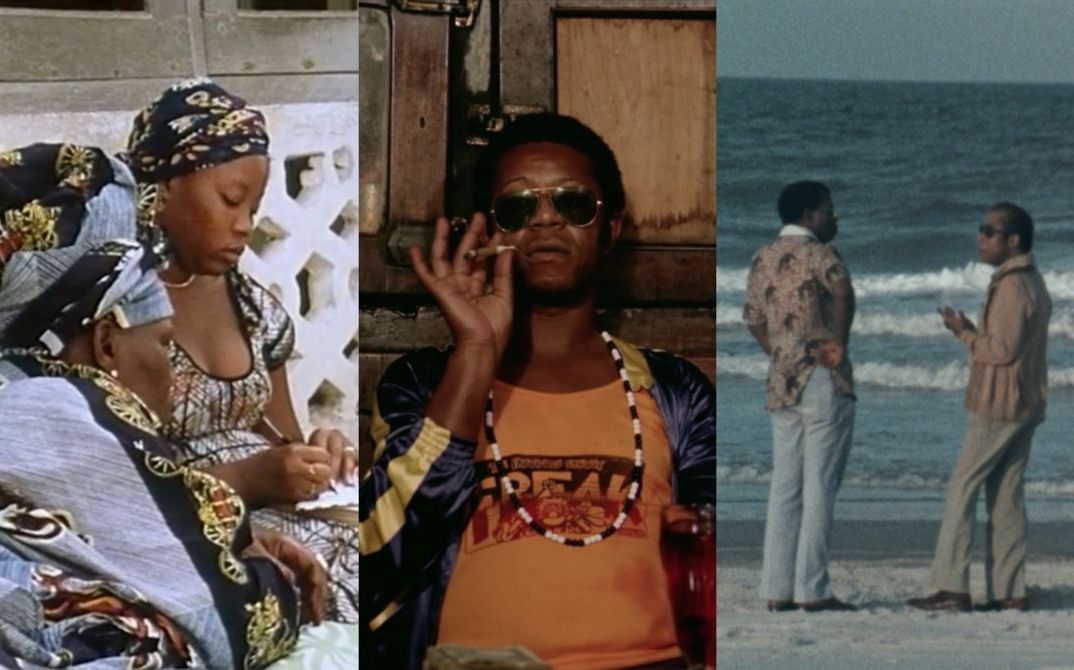This year too, a Forum Special complements the main programme of the independent section of the Berlinale. Two newly restored feature-length works explore different aspects of Black culture. The Harvard Film Archive has restored Dick Fontaine’s 1982 documentary I HEARD IT THROUGH THE GRAPEVINE. With James Baldwin by his side, the filmmaker travels through the southern states of the USA to find out what has become of the promises of the civil rights movement. A RAINHA DIABA (The Devil Queen) by Antonio Carlos da Fontoura from 1974 is a slice of queer genre cinema from Brazil. Although the film was made during the military dictatorship, it is astonishingly candid and flamboyant, with black star Milton Gonçalves, who died in May, shining in the leading role.
Ten short and feature-length films continue the “Fiktionsbescheinigung” series, which already served to compliment the 2021 and 2022 editions of the Berlinale Forum. The central question behind the series is how culture in general and cinema in particular are related to society and racism. “Fiktionsbescheinigung” is dedicated to the work of Black directors and directors of colour in Germany and seeks to incorporate intersectional perspectives into German film historiography.
This time around, curators Jacqueline Nsiah and Can Sungu have made some particularly precious finds over the course of their research, such as OYOYO, Chetna Vora’s 1980 diploma film. It was made in East Germany at the Hochschule für Film und Fernsehen in Babelsberg and celebrates how students from African, Latin American and Asian countries live together in a hall of residence. In the hands of another director, this premise could easily have ossified into internationalist ideology, but in the hands of Vora, who is from India, it remains wonderfully fluid. Her compatriot and classmate Gautam Bora proceeds in equally charming fashion in EIN HERBST IM LÄNDCHEN BÄRWALDE (1983). By visiting a family of farmers in the south of Brandenburg and asking them about their lives, working methods and approach to ownership, he sounds out the possibilities of a form of inverted ethnography. A programme put together by curator and artist Karina Griffith is dedicated to Kenyan director Wanjiru Kinyanjui, who studied at the dffb in Berlin three decades ago. Her 1995 graduation film DER KAMPF UM DEN HEILIGEN BAUM (The Battle of the Sacred Tree) is an inventive, skilful version of what Ngũgĩ wa Thiong’o, the doyen of Kenyan literature, once referred to as “decolonising thought”.
Korhan Yurtsever’s 1979 feature KARA KAFA (Black Head) was shot in Germany and banned for a long time in Turkey. The censorship board were of the opinion that it damaged “the honour of Germany, the nation to which we are bound in friendship”. Now the restored version of the film is receiving its premiere. Yurtsever observes how married couple Cafer and Hacer from Turkey develop different interests almost as soon as they arrive in Germany. While Cafer gradually loses his bearings, Hacer gets involved in a migrant women’s group and tries out the promise of intersectionality way before the concept had become established. A man also loses his bearings in Sohrab Shahid Saless’ black-and-white ORDNUNG (All in Order) from 1980, although Saless is concerned with exploring the rigidities and neuroses of the Germans. Born in Iran, the director created an oeuvre that is one of the most radical produced by German cinema in the 70s and 80s: ORDNUNG is a vivisection, with the camera as the scalpel.
Despite comprehensive research, it was not always possible to find prints in good or very good condition. ORDNUNG, for example, was shot on 35mm; at the moment, only a 16mm print is available for screening. OYOYO can also only be screened as a work print. The marginal position afforded to the works of filmmakers of colour is also reflected in the state of their prints. It is thus all the better that the Shahid Saless Archives and the Filmuniversität Babelsberg Konrad Wolf have begun comprehensive restoration projects. Nothing stands in the way of future retrospectives.
The films that make up the Forum Special and additional information on the programme can be found on the Arsenal website. An overview of the films can also be found via the programme search on the Berlinale website.

Forum Special: Headed for the Retrospectives of the Future
Queer flamboyance in Rio de Janeiro, inverted ethnography in Bärwalde and the camera-aided dissections of Sohrab Shahid Saless: this year's Forum Special explores marginalised areas of film history. The “Fiktionsbescheinigung” series continues, while two newly restored historical films round off the programme.